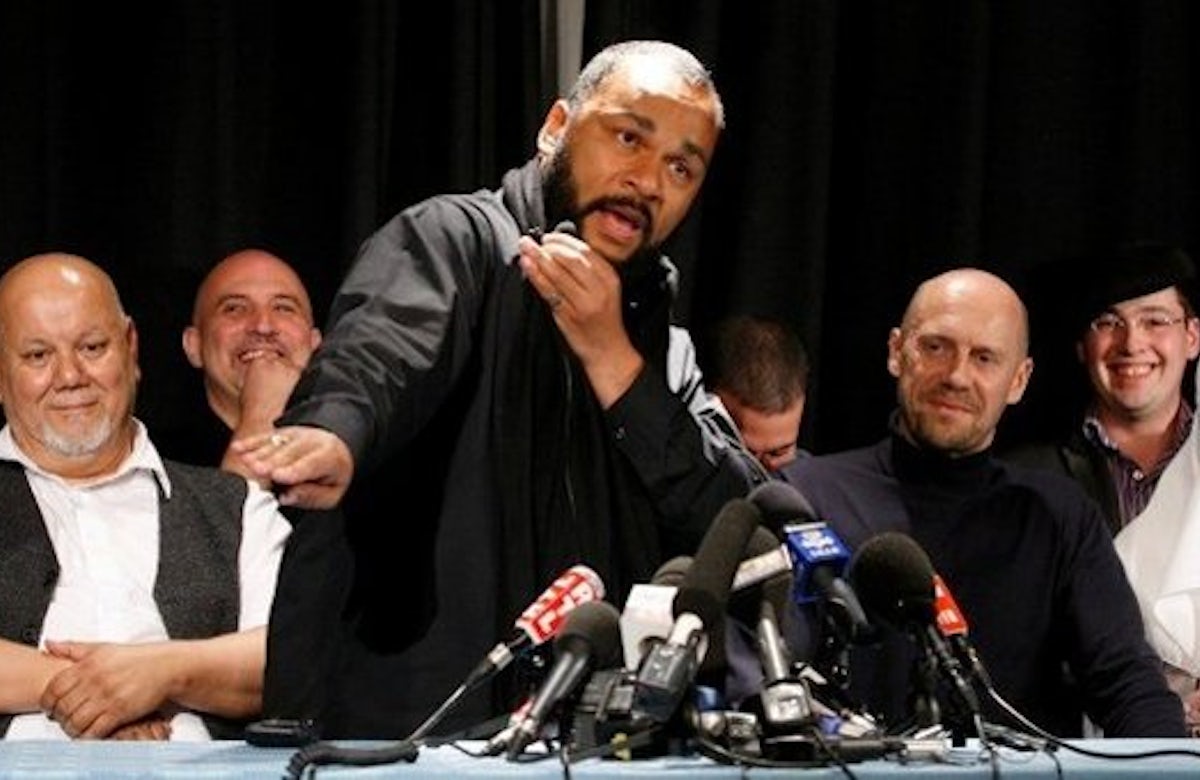World Jewish Congress’ (WJC) President Ronald S. Lauder hailed Tuesday’s ruling by the European Court of Human Rights against the anti-Semitic French comedian Dieudonné M’bala M’bala as a ‘milestone’ in the fight against hate speech, anti-Semitism and Holocaust denial. Lauder said: “Today, Europe’s top human rights court made it crystal clear that nobody can hide behind the pretext of comedy or satire when spreading vile anti-Semitic views, promoting Holocaust denial, or inciting to racial hatred.”
 With its ruling, the Strasbourg-based court confirmed lower court rulings that had found the French government’s ban on Dieudonné’s performances lawful.
With its ruling, the Strasbourg-based court confirmed lower court rulings that had found the French government’s ban on Dieudonné’s performances lawful.
Lauder declared: “Europe’s top human rights court has spoken loud and clear, and anti-Semites should take note: Freedom of expression does not give anyone the right to incite to hatred. The French government was right to take action against Dieudonné’s despicable shows, and this ruling should give authorities across Europe the necessary legal certainty to act likewise, especially when it comes to incitement on the internet.”
Ruling on an appeal brought by Dieudonné M’bala M’bala, the court found that the Frenchman had deliberately promoted anti-Semitic views and that his shows could no longer be regarded as entertainment but instead resembled political meetings, which, under the pretext of comedy, promoted Holocaust revisionism and were highly offensive to Jewish victims of the Shoah.
The court also found that disguised as an artistic production, Dieudonné’s show was in fact as dangerous as a head-on and sudden attack and provided a platform for an ideology which ran counter to the values of the European Convention on Human Rights. The real purpose of M’Bala M’Bala’s performance had been to use his right to free speech for ends which were incompatible with the letter and spirit of the Convention and which, if admitted, would contribute to the destruction of rights and freedoms, the seven judges of the court chamber ruled.
The European Court of Human Rights is a supreme court on human rights which operates under the auspices of the Council of Europe (CoE). All 47 CoE member states are contracting parties to the European Convention on Human Rights, and the court’s rulings bind them.






